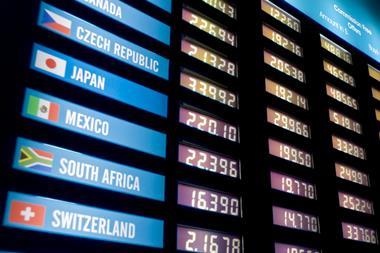Long-term investors cannot ignore the emerging markets despite their near-term problems, writes Joseph Mariathasan
Ashmore’s Jan Dehn, in a recent note, highlights the extraordinarily important question for emerging market countries – is the Cold War returning? His conclusion, thankfully, is that it isn’t. But the issues he raises are important for any investors in this area.
As Dehn points out, the original Cold War, which lasted from the end of World War II to the collapse of the Soviet Union in 1989, was an unmitigated disaster for emerging markets. Indeed, for most of that period, they were referred to as the Third World, separate from the Western and Communist spheres of influence and characterised by abject poverty.
As the US and USSR sought to bolster allies across the globe, there were numerous ‘hot wars’ taking place – Korea, Vietnam, the Soviet invasion of Afghanistan. But the more insidious evil that affected even more countries was, as Dehn points out, the Superpowers’ installing unaccountable dictators in countries right across the emerging markets.
It is difficult to appreciate in today’s world the complete lack of local political accountability that led to rampant corruption, populism, economic mismanagement and human rights abuses. Conditions were so bad it took emerging market countries the better part of the 1990s to adjust before they finally overcame the hangovers from the Cold War. Only by the 2000s were emerging market countries able to begin to realise their growth potential. The only reason for investing in the Third World was to gain exposure to commodities, which, as Dehn argues, is the reason for the now outdated perception that emerging market investing is a ‘commodity play’.
The concept of emerging markets reflects the new reality of countries where, as economists like Dehn argue, the natural forces of economic convergence cause them to outgrow developed economies. This does, in a sense, decouple them from developed markets. This is despite the fact – as the high volatility seen in emerging countries’ stock markets show – they are not decoupled from the problems that originate in the developed markets.
What is driving this phenomenon is not their exports to the developed countries but the rise of domestic consumers through the creation of increasingly affluent middle classes in countries across the globe. The wealth creation now lifting billions of people out of abject poverty is a direct consequence of the adoption of liberal economic policies predicated on free trade in a global economy.
Globalisation has always existed, but, in the past, it was confined to the elite and perhaps in a different way, to the have-nots. In the Middle Ages, it was silk from China to Venice for the elite. More recently, at the other end of the social spectrum, it was Indian labourers sent to South Africa, and Chinese labourers sent to the US, to build railways.
Making globalisation have a profound effect on the day-to-day existence of the middle-income population across the globe has permanently altered the dynamics of international trade. The US has imposed its structure on the global economy and catalysed a global trading system. The WTO is the medium through which this has happened, and the impact of WTO, and GATT preceding it, is still unfolding. Governments may be given grace periods for opening up certain sectors – generic pharmaceuticals in India, for example, or financials in China – and a foreign company may still need local joint venture partners in certain sectors, but liberalisation has become structural. Furthermore, accession to the WTO requires countries to liberalise sectors of their economies systematically. While this may take decades to play out, the trend is unmistakeable. There will be sustained growth over the next 20-30 years, and, ultimately, those impediments will disappear.
What characterises successful emerging markets is the rise of increasingly affluent middle classes. The rise of middle classes with enough disposable income to fuel domestic growth is essentially an urban phenomenon. Urbanisation is occurring at a rapid rate, with forecasts of 130m-200m Chinese moving from rural to urban areas over the next decade. Experience suggests governments create the right conditions for high domestic consumption through three key areas: establishing a safety net for old age, developing the use of credit and developing a retail infrastructure. These fundamental themes are driving the sometimes incredible performance of emerging markets and being played out over a timescale of decades rather than years. And they will continue for decades to come.
Countries are being mandated to open up markets. The impact of the rules-based system that has been created means a nation state cannot afford to de-link itself from the world community because it then ends up being a North Korea. Myanmar (formerly Burma) has only recently realised the advantages of following this path as it moves away from its previous pariah status to joining in global trade. Despite the concerns we are seeing over emerging markets today, they cannot and should not be ignored in long-term institutional portfolios.
Joseph Mariathasan is a contributing editor at IPE







